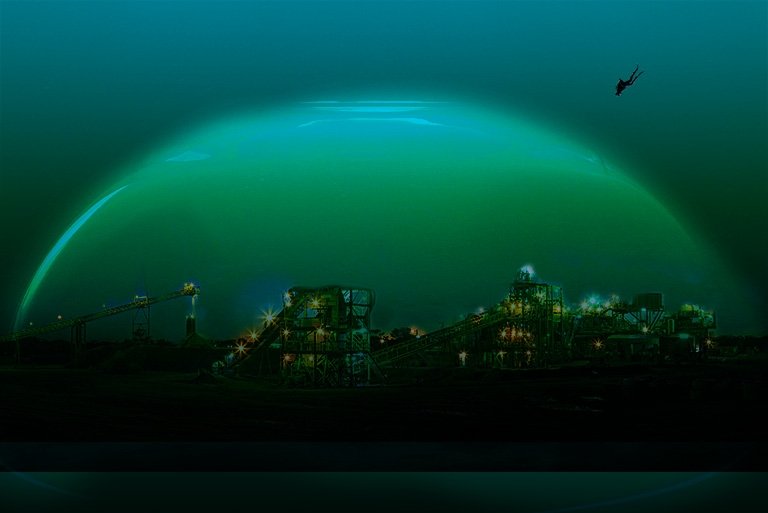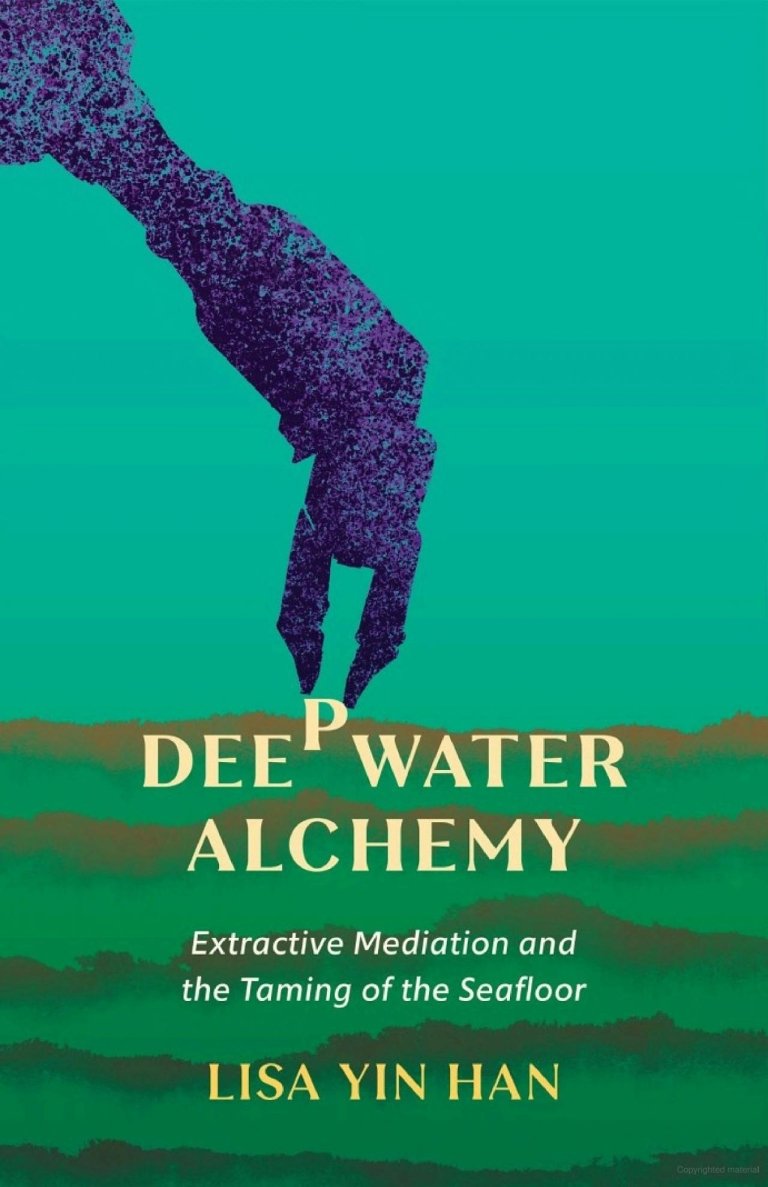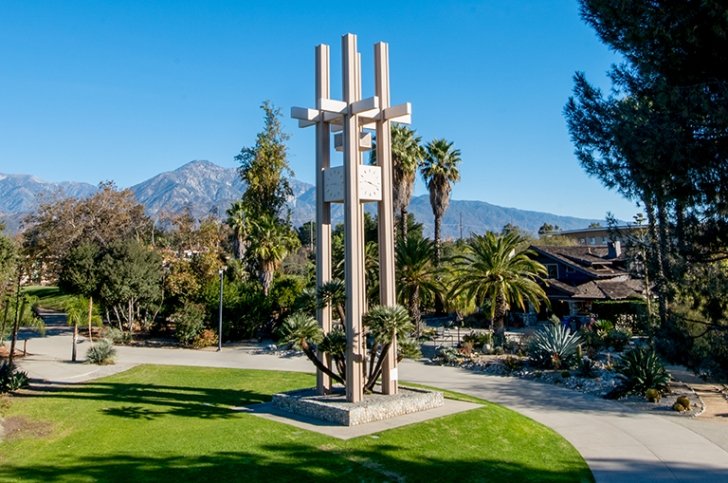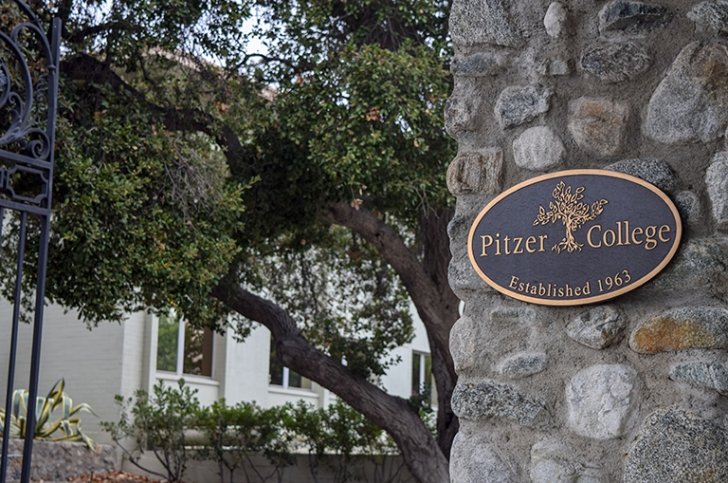Reimagining the Last Frontier
Lisa Yin Han’s award-winning book, Deepwater Alchemy, draws on the humanities to reframe humanity’s use—and harm—of the world’s oceans

By Marc Weingarten

As a grad student at UC Santa Barbara, Lisa Yin Han would often stroll over to the Stearns Wharf Pier, where she could view the oil rigs a few miles offshore sitting there like statuary and extracting hydrocarbons from the ocean, as they have done for more than 60 years. Han had heard the story of the 1969 oil spill, when one of these rigs exploded, releasing 100,000 gallons of oil into the water. Yet the rigs remained, as they do today. The story of the spill never left Han, even after she earned her PhD in film and media studies from UCSB.
“Being in Santa Barbara had a big impact on me in terms of shaping my intellectual trajectory,” said Han, an assistant professor of media studies in the intercollegiate media studies program at The Claremont Colleges. Han’s first book, Deepwater Alchemy: Extractive Mediation and the Taming of the Seafloor, is the outgrowth of her thinking about oceans—namely, the uneasy symbiosis of science and business, and how media shapes our attitudes about unchecked hydrocarbon extraction. The book also won the 2025 Fleck Prize from the Society for Social Studies of Science.
Han’s emphasis in Deepwater Alchemy is the ocean floors that have become the last frontier for oceanic exploration. For millennia, what lay beneath the oceans was a deep, dark mystery, unfathomably remote and unknown. With scientific progress came a less murky picture of the ocean floor, as well as a drive toward extracting its treasures for profit, which proceeds apace today. It is in some ways the aqueous version of Manifest Destiny, what Han calls “the mechanical conquest over nature,” as petroleum engineers, treasure hunters, and even weekend warriors in underwater submersibles attempt to codify, taxonomize, and take what they will from the world’s seabeds.
As the science and technology of ocean mapping has become a multibillion-dollar enterprise and our knowledge of the ocean has grown, we have come to think about our seas the way we think about land, as something that can be parceled, classified, and plundered. “How we’ve come to relate to the ocean is informed by how we relate to terrestrial space,” said Han. This has transformed the seafloor into what Han calls a “resource frontier” in which scientific discovery begets extraction, often to the detriment of marine life.
“Oceanographic science is such an expensive endeavor. It’s expensive to buy ship time, to be able to have technologies that can operate underwater,” said Han. “So, when it comes to funding, a lot of it comes from industry, at least in the U.S.”

Seafloor extraction, as Han sees it, is science working in tandem with capitalist enterprise. How we perceive this relationship is contingent upon what Han in her book calls the “locative, datalogical, and representational media technologies” that are disseminated (mostly) on the internet. Given that the discipline of media studies is predicated on the notion that “what matters is not just what we tell each other but also how we tell it,” Han’s book details how the extractive scientific-industrial complex uses both familiar media tropes and high-tech razzle dazzle to normalize the public’s perception of what has often been a dangerously invasive and economically venal enterprise.
This media spin entails creating phenomenological narratives that ignore the natural world and place humans front and center, the sexiest and most compelling of these being the retrieval of shipwrecks from the ocean floor. Han visited maritime museums in the U.S. and China to find out how certain ideas about loss and retrieval vis-à-vis the romance of the shipwreck narratives have shored up the extraction industry.
"There's a reason why disruptions that occur in the ocean depths are not as readily understood by the public as other kinds of terrestrial animal slaughter. Han calls this phenomenon extractive mediation ..."
“Shipwrecks dominate our imagining of the seafloor,” said Han. “Even now, the Titanic is so much a part of our popular discourse. I wanted to explore how these stories preempt our thinking about the seabed as a resource frontier.” What we take away from the Pearl Harbor Museum in Hawaii, to name just one example, are ideas of vigilance, derring-do, and technological triumph—in short, man’s mastery over nature. What we don’t find there are examples of ecological damage, the degradation of the seafloor in the quixotic pursuit of man-made artifacts.
Han’s book illustrates the ways in which technological innovations that allow explorers to create a clearer picture of the ocean floor can have deleterious effects on marine life. For decades, oceanographic scientists have used various sounding techniques to get better images of the seabed, but the ecological consequences can be dire.
“There is so much emphasis on the development of better technologies around sound sources, but there’s a lot less thinking about the environmental impact,” said Han. “A device called the NOBEL [near ocean bottom explosive launcher] is a rig of eight or so explosives. They just drop it to the bottom of the ocean, and the device detonates. Of course, this kills everything in the area of the device, including plankton and other crucial marine life.”
Ostensibly less invasive innovations such as echolocation, in which an audial impulse is discharged into the ocean via powerful air guns, has been hailed as a gentler way to map the seabed. But as Han points out, “it largely ignores or deems negligible the production of fear, anxiety, and confusion in nonhumans.” Han cites studies that have found white whales to have increased levels of dopamine and adrenaline near seismic air gun exposures, indicating increased stress levels. “Sonar, which is also considered a safer technology, has caused mass whale strandings,” said Han.
There’s a reason disruptions that occur in the ocean depths are not as readily understood by the public as other kinds of terrestrial animal slaughter. Han calls this phenomenon extractive mediation, the means by which industries with a vested interest in ocean exploration, especially giant petroleum concerns, refract their work through a highly selective media lens, creating what the linguist and cultural critic Noam Chomsky might call manufactured consent.
“Although there has been a push for a global observation network, the impetus for that is coming from a very singular direction,” said Han. “What I try to do in the book is to think about what it would mean to foster coproduction of knowledge instead of just assimilating all information into one system. People have different ways of seeing things, and it’s important that we maintain that diversity of knowledge.”
News Information
Published
Author
Marc Weingarten


